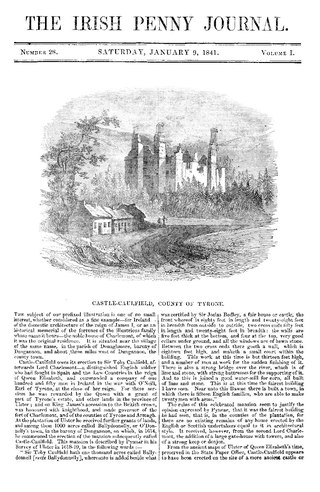Fictional characters
- Quinlan Vos, a Jedi Master in the Star Wars franchise
- Todd Quinlan, aka "The Todd", a fictional character in the TV series Scrubs
Quinlan is an Irish surname, also used as a given name. Notable people with the name include:

O'Reilly is a common Irish surname. The O'Reillys were historically the kings of East Bréifne in what is today County Cavan. The clan were part of the Connachta's Uí Briúin Bréifne kindred and were closely related to the Ó Ruairc (O'Rourkes) of West Bréifne. O'Reilly is ranked tenth in the top twenty list of most common Irish surnames. It is also the patronymic form of the Irish name Reilly. The name is commonly found throughout Ireland, with the greatest concentration of the surname found in County Cavan followed by Longford, Meath, Westmeath, Fermanagh and Monaghan, and the Province of Leinster.
McGrath or MacGrath derives from the Irish surname Mac Craith and is occasionally noted with a space: e.g. Izzy Mc Grath. In Ireland, it is pronounced "Mack Grah" "Mick Grah" or "Ma Grah". In Australia and New Zealand it is pronounced MuhGrah.
Delaney is an Irish surname derived from the Gaelic Ó Dubhshláine, Dubh meaning black and Sláine for the River Sláine (Slaney). DeLaney is also of Norman origin. Variants include Delaney, Delany and Dulaney.
Flynn is an Irish surname or first name, an anglicised form of the Irish Ó Floinn or possibly Mac Floinn, meaning "descendant or son of Flann". The name is more commonly used as a surname rather than a first name.
The surname Collins has a variety of likely origins in Britain and Ireland:
Rice is a surname that is frequently of Welsh origin, but also can be English, Irish, or even German. In Wales it is a patronymic surname, an Anglicized transliteration of Rhys, as are Reese and Reece. The German name Reiss has also been transliterated as Rice in the United States.
MacDonnell, Macdonnell, or McDonnell is a surname of Scottish and Irish origin. It is an anglicized form of the Gaelic patronymic Mac Dhòmhnaill, meaning "son of Dòmhnall". The Gaelic personal name Dòmhnall is a Gaelicised form of the name Donald, which is composed of the elements domno, meaning "world", and val, meaning "might" or "rule". The name is considered a variation of MacDonald.
Lawrence is an English, Scottish and Irish surname. It is derived from Middle English or old French given name Laurence; itself derived from Latin Laurentius. The Oxford dictionaryof family names of Britain lists Laurence and McLaren as variants.
Duffy is a surname of Irish origin that comes from the original Irish name Ó Dubhthaigh, meaning descendant of Dubthach. Dubthach was an Old Irish first name meaning "black".
Grimes is a surname that is believed to be of a Scandinavian, English, or Irish descent.

Burke is a Norman-Irish surname, deriving from the ancient Anglo-Norman and Hiberno-Norman noble dynasty, the House of Burgh. In Ireland, the descendants of William de Burgh had the surname de Burgh, which was gaelicised in Irish as de Búrca and over the centuries became Búrc, then Burke, and Bourke.
Hurley is an English and Irish surname. It is most often a habitational name derived from Old English hyrne 'corner' plus leah 'woodland clearing'. In Ireland it may be an Anglicized form of the Gaelic Ó hUrthuile 'descendant of Urthuile.

Kelly is a surname of Irish origin. The name is a partially anglicised version of older Irish names and has numerous origins, most notably from the Ui Maine. In some cases it is derived from toponyms located in Ireland and Great Britain; in other cases it is derived from patronyms in the Irish language.
Harrington is an English habitational name from places in Cumbria, Lincolnshire, and Northamptonshire. It is also a common surname in southwest Ireland, where it was adopted as an Anglicized form of the Gaelic surnames Ó hArrachtáin and Ó hIongardail. Notable people with the surname include:
Dwyer is an Irish surname which is a slightly anglicised variation of O'Dwyer. It is said that people with the surname Dwyer and who come from Ireland all come from the same clan.

Donnelly is an Irish surname. Also used as: O’Donnelly or Donley. It is derived from the Gaelic Ó Donnghaile meaning 'descendant of Donnghal', a given name composed of the elements donn and gal ('valour'). O'Donnelly was historically of the Northern Uí Néill's Cenél nEoghain, descended from Donnghal, the great-grandson of Domhnall, King of Ailech.
Abraham is a surname. It can be of Jewish, English, French, German, Dutch, Irish, Welsh, Cornish, Breton, Lebanese, Syrian and other origins. It is derived from the Hebrew personal name Avraham, borne by the biblical patriarch Abraham, revered by Jews as a founding father of the Jewish people, and by Muslims as founder of all Semitic peoples. The name is explained in Genesis 17:5 as being derived from the Hebrew av hamon goyim "father of a multitude of nations". It was commonly used as a given name among Christians in the Middle Ages, and has always been a popular Jewish given name. The English name Abram is often a short form of Abraham, but it can also be a shortened version of Adburgham, which comes from a place name. As an Irish name, it was adopted as an approximation of the Gaelic name Mac an Bhreitheamhan "son of the judge". The German name Brahm is often a short form of Abraham, but it can also be a topographic name signifying someone who lived near a bramble thicket. The name Braham has been used as an Anglicization of both Abraham and its patronymic Abrahams by Ashkenazi Jews in the British Isles. Abraham has also been used as an Anglicization of the equivalent Arabic surname Ibrāhīm. It is also found as a given name among Christians in India, and has come to be used as a family name among families from Kerala.
Tobin is an Irish surname of Norman origin.